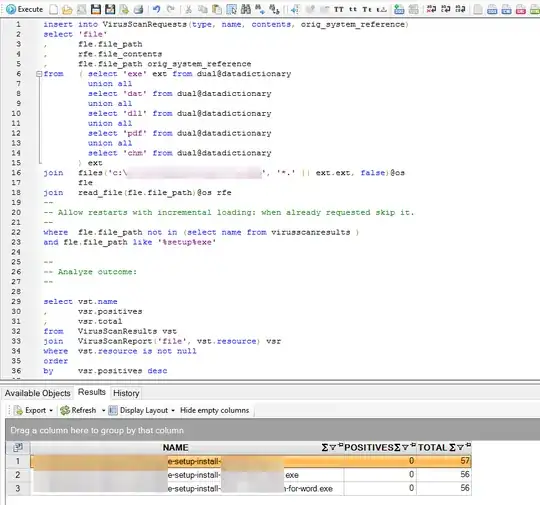The best way is to first upload all files eligible for virus infection using:
insert into VirusScanRequests(type, name, contents, orig_system_reference)
select 'file'
, fle.file_path
, rfe.file_contents
, fle.file_path orig_system_reference
from ( select 'exe' ext from dual@datadictionary
union all
select 'dat' from dual@datadictionary
union all
select 'dll' from dual@datadictionary
union all
select 'pdf' from dual@datadictionary
union all
select 'chm' from dual@datadictionary
) ext
join files('c:\PATH', '*.' || ext.ext, false)@os
fle
join read_file(fle.file_path)@os rfe
on length(rfe.file_contents) < 32e6
--
-- Allow restarts with incremental loading: when already requested skip it.
--
where fle.file_path not in (select name from virusscanresults )
And then after some time check the outcome of the virus scans:
select vst.name
, vsr.positives
, vsr.total
from VirusScanResults vst
join VirusScanReport('file', vst.resource) vsr
where vst.resource is not null
order
by vsr.positives desc
When you replace vsr.positives by vsr.* you will get a list of all virus scanners and their results.
You can also schedule it to run every once so often or include it in the build program you are using.

